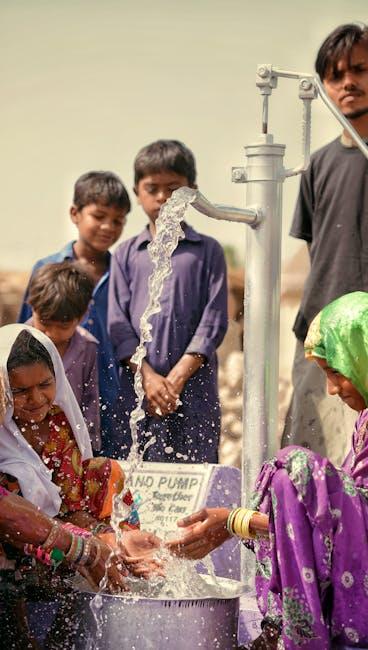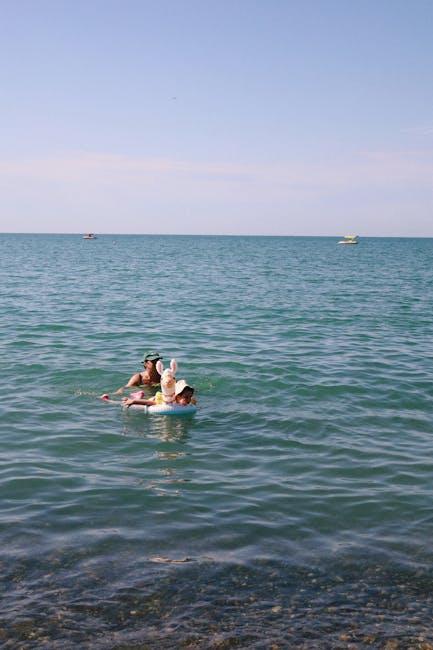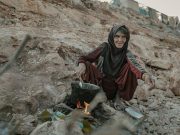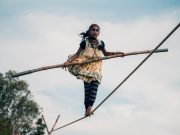In the heart of every family trip lies an intricate tapestry of experiences, woven together with laughter, discovery, and sometimes, unexpected lessons. As parents chart the course for their children’s formative adventures, they often find themselves navigating not only new landscapes but also the complex terrains of life lessons. Among these lessons, the realities of poverty stand as both a profound challenge and an invaluable teacher. This article delves into the art of guiding young minds through the nuanced understanding of economic disparities, using the backdrop of family travel as a canvas for empathy, resilience, and awareness. By exploring how travel can be a conduit for social education, we aim to provide insights on transforming journeys into meaningful dialogues that resonate long after the suitcases are unpacked.
Cultivating Empathy Through Travel Experiences
- Immersive Experiences: When families travel to regions where poverty is prevalent, children gain firsthand exposure to the challenges faced by others. They learn to see beyond their own circumstances, cultivating a deeper understanding of global disparities. Parents can guide these experiences by encouraging conversations with locals, visiting community projects, or engaging in volunteer activities. This immersion fosters a sense of empathy, as children witness resilience and strength in the face of adversity.
- Reflective Discussions: After a day of exploration, sitting down as a family to discuss what they’ve seen can be profoundly impactful. Encouraging kids to express their feelings and thoughts helps them process their experiences. Questions like “How do you think the children here feel about their daily lives?” or “What can we learn from the communities we’ve visited?” prompt introspection and understanding. Such discussions can spark a lifelong commitment to empathy and social awareness.

Teaching Resourcefulness in Challenging Situations
Family trips can be more than just a getaway; they can be powerful lessons in resilience and adaptability. In the face of financial constraints, parents can transform limitations into opportunities for their children to learn and grow. Resourcefulness becomes the ultimate souvenir when families embark on journeys with limited means, teaching kids invaluable life skills that textbooks often overlook.
- Creative Budgeting: Involve children in planning the trip’s budget, turning cost-saving into a fun challenge. Encourage them to find free or low-cost activities, sparking their creativity and strategic thinking.
- Problem-Solving Adventures: Unexpected challenges during trips, like a flat tire or a canceled reservation, are perfect moments to engage kids in problem-solving. Let them brainstorm solutions and feel the satisfaction of overcoming obstacles.
- Minimalist Packing: Encourage kids to pack light, emphasizing the importance of prioritizing essentials. This practice not only teaches them to value what they have but also to make thoughtful decisions.
In these moments, children learn that happiness and adventure do not rely on luxury but on the spirit of togetherness and innovation. By embracing the lessons of limited resources, families can foster a mindset in children that appreciates life’s richness beyond material wealth.

Embracing Simple Joys and Building Resilience
In the heart of every family trip lies a tapestry of simple joys waiting to be discovered. As we embark on these adventures, we weave in lessons of resilience, especially when financial constraints shape our journey. The essence of these trips isn’t found in lavish destinations but in the shared moments that bring us closer. Watching a sunset together, skipping rocks across a tranquil lake, or sharing a homemade picnic under the shade of a sprawling tree are experiences that teach children the value of finding happiness in life’s uncomplicated offerings.
- Connection: Engaging in heartfelt conversations during long drives.
- Creativity: Turning limited resources into memorable experiences.
- Resourcefulness: Learning to adapt and make the most of what’s available.
- Gratitude: Appreciating what we have and those around us.
Through these experiences, children not only learn to cherish life’s simple pleasures but also build a foundation of resilience. This resilience becomes a lifelong companion, equipping them to face future challenges with courage and a positive outlook. The memories created on these family trips, though perhaps born from modest means, become rich tapestries of learning and growth, illustrating that the true wealth of a family lies in its shared experiences and enduring bonds.

Fostering Financial Awareness on Family Adventures
Family trips offer a unique platform for children to learn about financial awareness in an engaging and real-world setting. As parents, it is crucial to involve kids in the planning stages of the trip, allowing them to understand the value of money and the importance of budgeting. Here are some creative ways to integrate financial lessons into your family adventures:
- Involve Them in Budgeting: Encourage children to help with trip budgeting by assigning them tasks like researching affordable accommodations or comparing meal prices. This hands-on experience can enhance their understanding of financial decision-making.
- Teach Through Experiences: Use local markets as a classroom. Allow your kids to handle transactions, emphasizing the concept of value and exchange. Highlight how prices can vary based on location, quality, and demand.
- Discuss Opportunity Costs: Explain the concept of opportunity cost by involving them in decisions, like choosing between a costly amusement park or several smaller attractions. Discussing these choices fosters critical thinking and financial prioritization.
By weaving financial discussions into family adventures, parents can nurture a sense of financial literacy in their children, preparing them for a future where they are both financially aware and responsible.






























